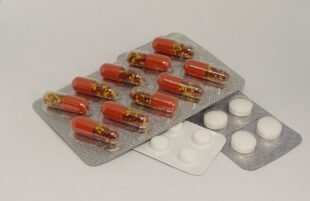I have previously written about qualification of suppliers and this new post is to alert companies of a fresh concern.
 We are seeing a growing use of false NHS and private prescriptions to obtain medicines from Marketing Authorisation Holders (MAH). Prescriptions are requested by the MAH for a variety of reasons, but mainly to provide evidence the product is needed for a patient. Typically prescriptions are requested for high cost medicines not usually seen in dispensing pharmacies. Redacted prescriptions are presented by a pharmacy to the MAH, implying there is a patient, the product is supplied, but is then wholesaled and not dispensed to a patient.
We are seeing a growing use of false NHS and private prescriptions to obtain medicines from Marketing Authorisation Holders (MAH). Prescriptions are requested by the MAH for a variety of reasons, but mainly to provide evidence the product is needed for a patient. Typically prescriptions are requested for high cost medicines not usually seen in dispensing pharmacies. Redacted prescriptions are presented by a pharmacy to the MAH, implying there is a patient, the product is supplied, but is then wholesaled and not dispensed to a patient.
MAHs have an obligation to ensure appropriate and continued supplies of medicinal product to pharmacies and persons authorised to supply medicinal products so that the needs of UK patients are met, set out in Article 81 of Directive 2001/83/EC. Some MAHs have decided to manage the distribution of specific products by requesting a redacted prescription to ensure the supply is for a UK patient.
Over the last year we have been conducting supply chain integrity inspections and seen at several pharmacies that hold wholesale dealer licences prescriptions presented to the MAH to obtain medicines. These medicines are received and then sold on for parallel export. The prescriptions presented are false as there is no patient and the prescription has been created to obtain the product for re-sale.
 If you are a pharmacy with a WDA(H) that is using redacted prescriptions to obtain stock for wholesale, you must cease this activity. It is a breach of the conditions of the wholesale dealer licence set out in regulation 43(2) of the Human Medicines Regulations by impinging on the ability of the MAH to discharge its obligations under Article 81 of Directive 2001/83/EC that the needs of UK patients are met.
If you are a pharmacy with a WDA(H) that is using redacted prescriptions to obtain stock for wholesale, you must cease this activity. It is a breach of the conditions of the wholesale dealer licence set out in regulation 43(2) of the Human Medicines Regulations by impinging on the ability of the MAH to discharge its obligations under Article 81 of Directive 2001/83/EC that the needs of UK patients are met.
We have also seen companies who are acting on behalf of pharmacies that place orders for the products with the MAH. Companies have been contacting pharmacies offering to source these ‘hard to obtain’ products for a commission or committing to buying the products. Purchasing of medicines is wholesale distribution, so any company procuring on behalf of another must hold a WDA(H) and be named on a licence as a third-party site. Contracts must be in place to properly control the activity.
We have seen companies who have not asked questions of who is buying products on their behalf or how they have been obtained. When investigating the supply chain, we have seen order forms in the name of a pharmacist, with a signature and a GPhC number and a redacted prescription. When asked to explain how this occurred, pharmacists have expressed shock to find someone using their details without their knowledge. However the products have arrived in the pharmacy and in some cases payment in advance is requested, with no questions asked and then the items are wholesaled on.
Searching questions must be made before allowing any company to purchase medicines using your licence or pharmacy registration. If high value products are arriving at your pharmacy that you didn’t order, that you then wholesale, you need to be able to show how they were obtained. As a Responsible Person on a WDA(H) you must be able to demonstrate that all medicines have been purchased appropriately and in line with GDP.
Where we find stock obtained in this way companies have had critical inspection findings and via the Inspection Action Group, licence suspensions and removal of the Responsible Person. Any pharmacists involved in creation of false prescriptions are referred to the General Pharmaceutical Council for Fitness to Practice consideration. The details of the information sharing arrangements are set out in the memorandum of understanding
Important news update
 At the other end of distribution in my post on how to conduct customer qualification I describe the checks that need to be made before supplying registered practitioners. Wholesalers should be aware of 2 recent attempts in Scotland where an individual using the registration number of a doctor attempted to order Diazepam and other similar products. The individual attempted to get products delivered to an address where they can intercept the delivery. The blog advise that the GMC medical register does not include the address of registered doctors so companies should avoid sending products to home addresses. Doctors operating in the independent sector will be working from clinics registered with the CQC in England, Healthcare Inspectorate in Wales, Healthcare Improvement in Scotland and The Regulation and Quality Improvement Authority in Northern Ireland. Medicines should usually be dispatched to these verifiable addresses rather than residential properties.
At the other end of distribution in my post on how to conduct customer qualification I describe the checks that need to be made before supplying registered practitioners. Wholesalers should be aware of 2 recent attempts in Scotland where an individual using the registration number of a doctor attempted to order Diazepam and other similar products. The individual attempted to get products delivered to an address where they can intercept the delivery. The blog advise that the GMC medical register does not include the address of registered doctors so companies should avoid sending products to home addresses. Doctors operating in the independent sector will be working from clinics registered with the CQC in England, Healthcare Inspectorate in Wales, Healthcare Improvement in Scotland and The Regulation and Quality Improvement Authority in Northern Ireland. Medicines should usually be dispatched to these verifiable addresses rather than residential properties.
There have also been 2 thefts from wholesalers in the last few weeks where product has been collected from their warehouses by people pretending to be authorised customers. In both cases legitimate pharmacy customer details were used by criminals, but the contact details provided were false. If any customer contacts you to request they collect an order from your warehouse, and that is not an agreed process, you should immediately be suspicious and check with the customer on a telephone number or email address you know to be the customers, not calling back on the number or email provided by the initial caller.
It is important that a process and a quality technical agreement is in place before a customer can collect medicinal products from your site. As the supplying wholesaler you are responsible for transport and that GDP responsibility can only be accepted by the customer when clearly defined in an agreement signed by both parties.
A further twist that manufacturers and wholesalers need to be aware of is criminals impersonating legitimate wholesalers to order products. They place orders for example using similar email names, but with .org or .com instead of the company .co.uk email address. The supplier communicates with the criminals believing they are speaking to the wholesaler. When the ordered goods arrive at the wholesaler they are placed in quarantine as they are unexpected. An email or telephone call is then placed by the criminals posing as the supplier and advising of the incorrect delivery and then arriving to uplift the goods. As the criminals are aware of the delivery they can quote references to make them appear genuine.
- Would your systems spot such an attempted theft?
Finally, I would like to emphasise again the importance of everyone in the supply chain ensuring the highest standards in supplier and customer qualification.
Don’t miss the next post, sign up to be notified by email when a new post is published on the Inspectorate blog.


1 comment
Comment by Bob Hayes, SeerPharma (UK) posted on
Excellent blog, highlighting the inventiveness of the criminal fraternity and the importance of robust systems within the legitimate supply chain.